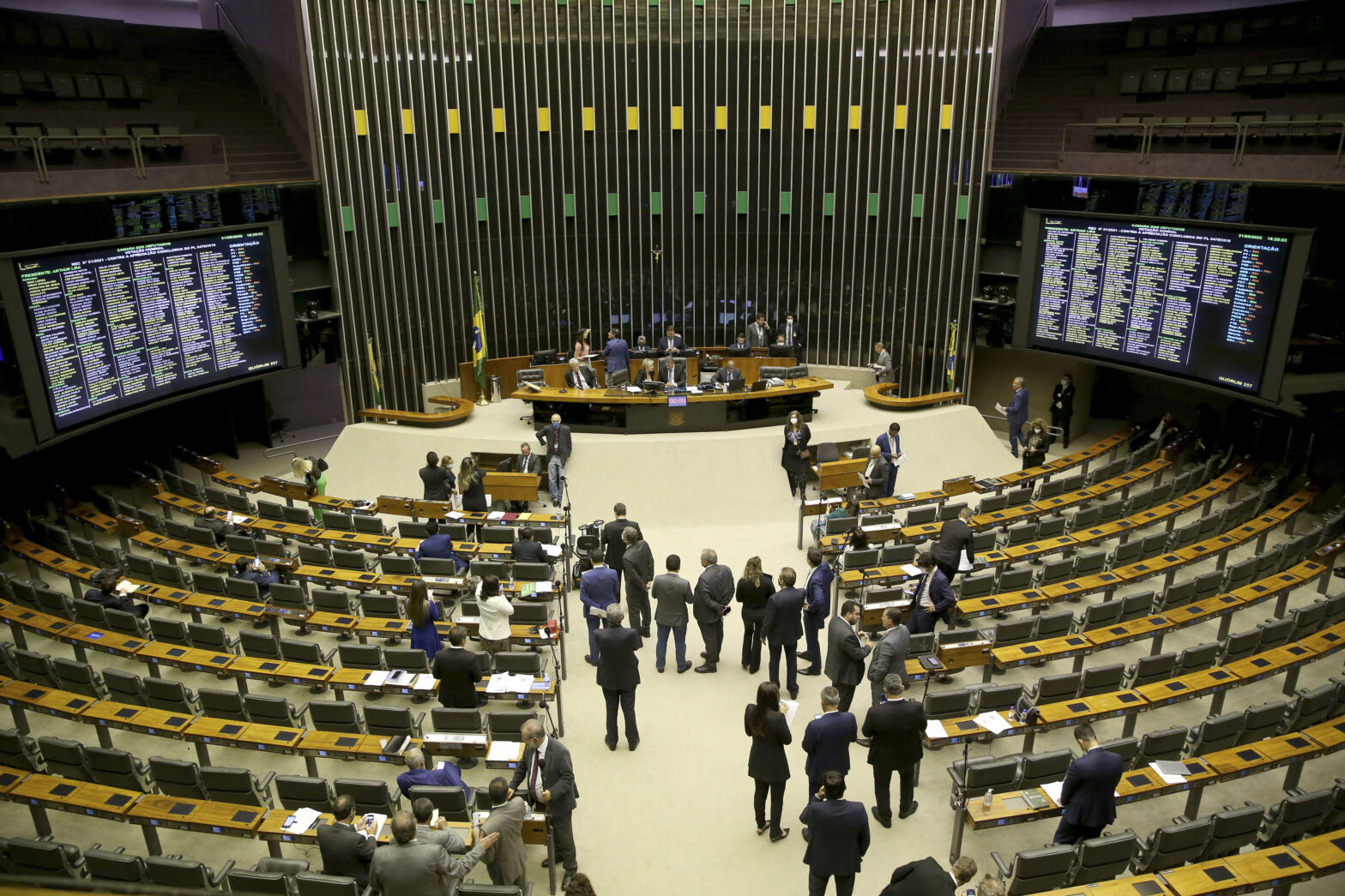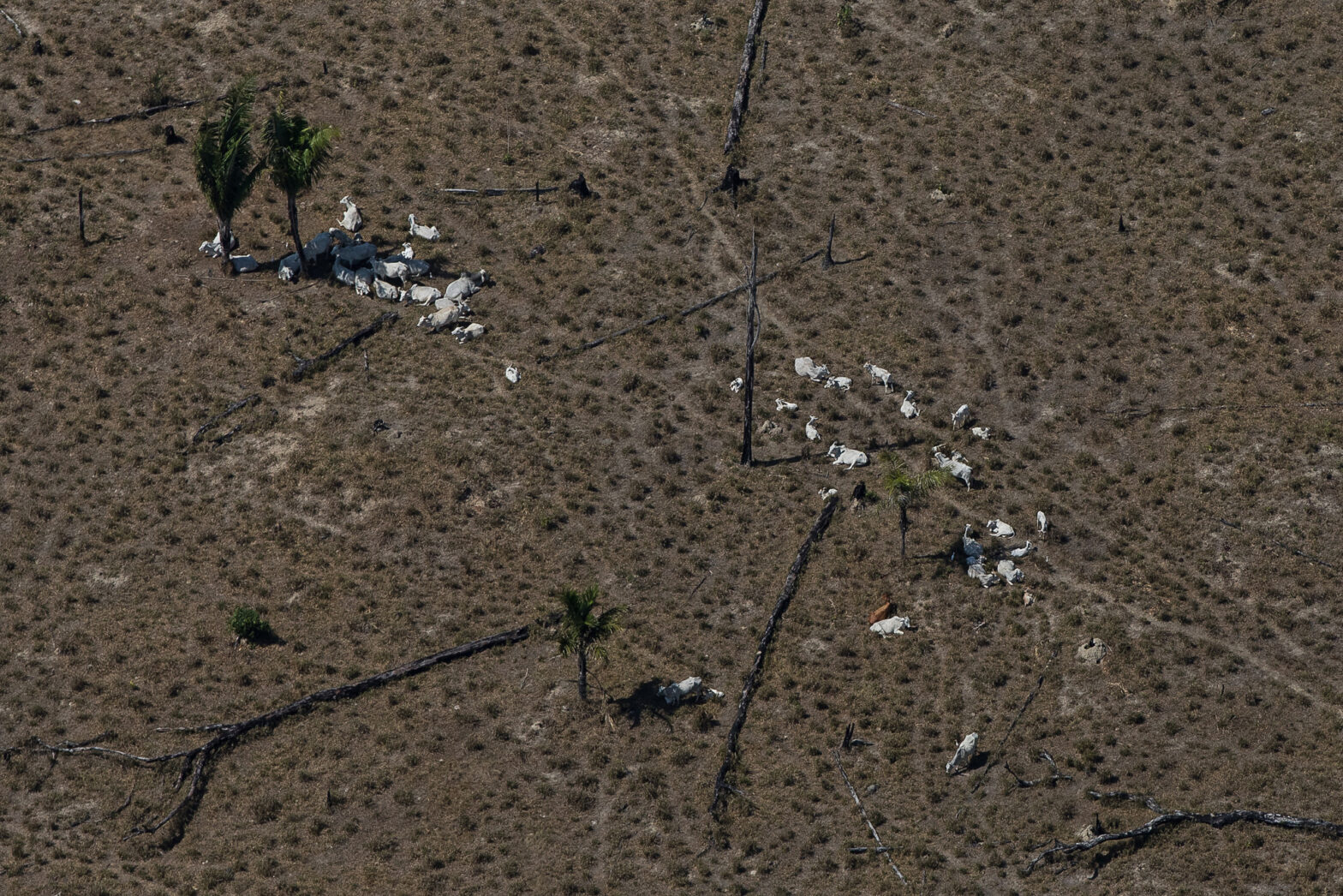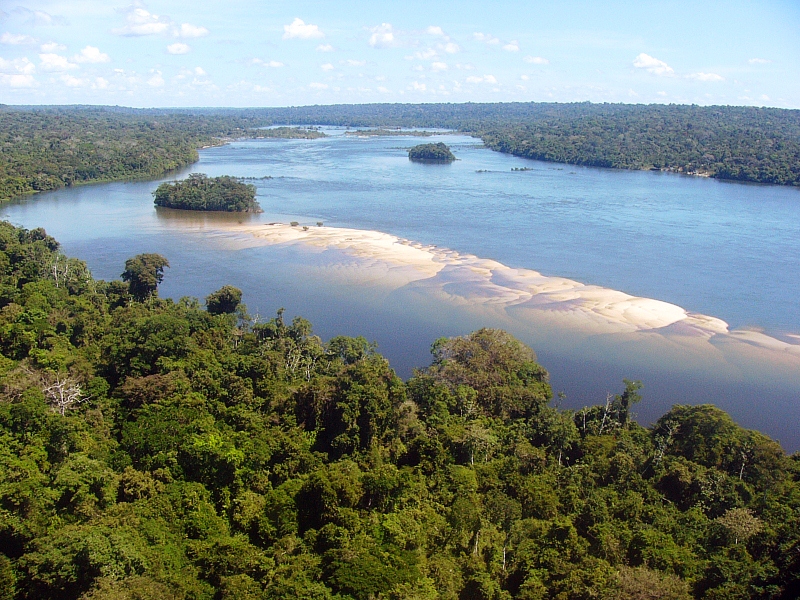In a conversations with InfoAmazonia, Maial Kaiapó, Samela Sateré-Mawé, Júnior Hekurari Yanomami and Alessandra Korap Munduruku spoke about the historically important establishment of the Ministry of Indigenous Peoples, and the sense of relief following the dismantling of environmental policies.
Just over a month after the end of Jair Bolsonaro’s administration, four Indigenous leaders from different parts of the Brazilian Amazon are expressing a common feeling: relief. InfoAmazonia heard from Maial Kaiapó and Alessandra Korap Munduruku in the state of Pará, Júnior Hekurari Yanomami in Roraima and Samela Sateré-Mawé in the state of Amazonas. All four told of how life had been over the previous four years in the Federal Indigenous Territories: Federal Indigenous Territories are recognized and delimited throughout Brazil by the Federal Government for the maintenance of Indigenous lifestyle and culture .The leaders evaluated the change in administration and commented on their expectations for the future.
Aside from relief, they also spoke to the fact that Brazil has entered an entirely new political phase, with creation of the Ministry of Indigenous Peoples as well as placement of Indigenous individuals in key governmental positions: the presidencies of both FUNAI (National Foundation of Indigenous Peoples) and SESAI (Special Secretariat of Indigenous Health). These two agencies are the most important for the assistance, protection and promotion of Indigenous rights in Brazil.
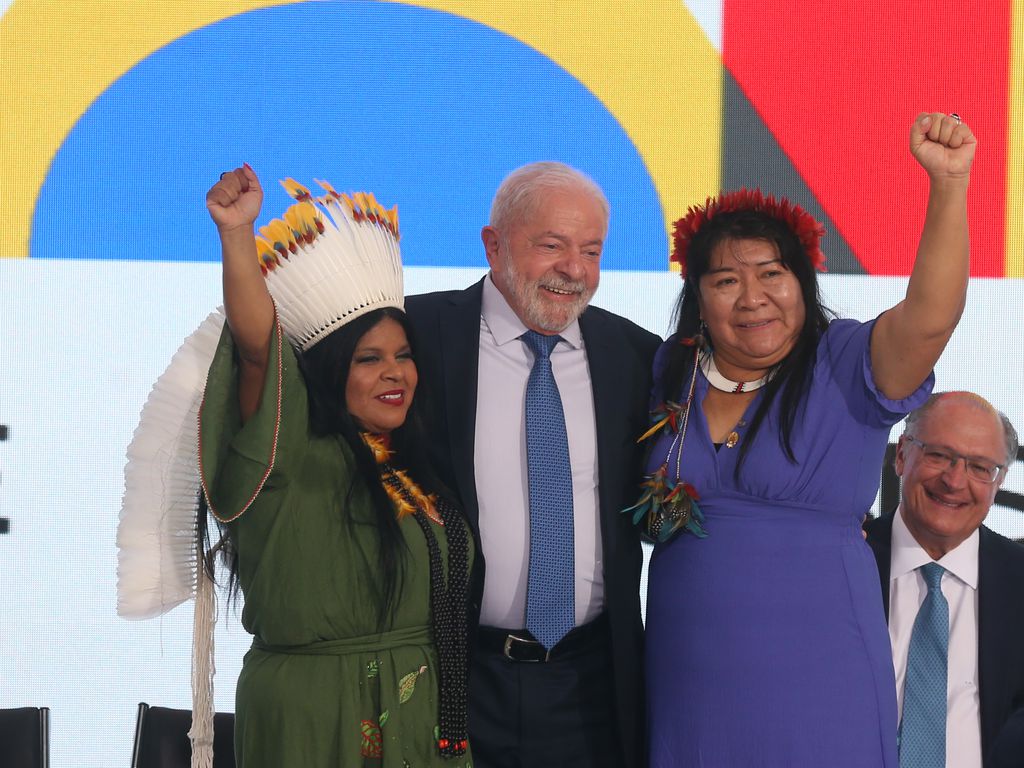
“What is happening today is because of the 1988 Constitution and the work of Indigenous leaders, some of whom have already departed and some who are still with us”, says 35 year-old Maial Kaiapó, one of the big names among Indigenous youth in Brazil and daughter of one of the most important Indigenous leaders to participate in the 1988 National Constituent Assembly, Paulinho Paiakan.
What is happening today is because of the 1988 Constitution and the work of Indigenous leaders, some of whom have already departed and some who are still with us.
Maial Kaiapó
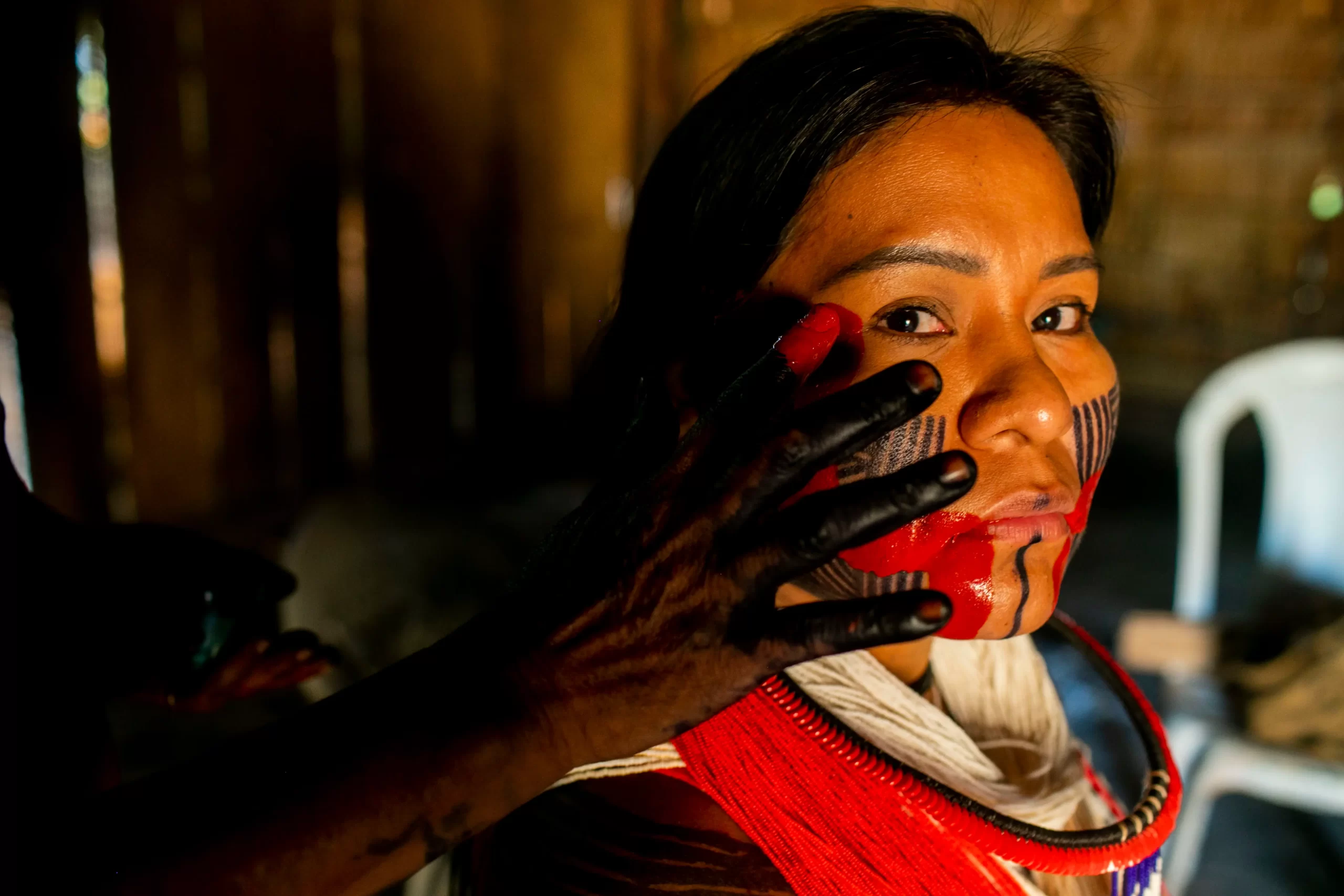
Only the beginning
Samela Sateré-Mawé, the 26-year-old political activist from Amazonas, believes that this is the start of much evolution to come: “In 34 years of democracy, we were never included in these governmental spaces for debate. Now, we have this opportunity. We know it won’t be easy, but rather a broad building phase.” A communicator and biology student, Sateré-Mawé was raised in urban Manaus, Amazonia, inside AMISM, the Sateré-Mawé Indigenous Women’s Association, the pioneering Indigenous women’s leadership organization in the region.
Before the COVID-19 pandemic, the women at AMISM earned their living by selling handicrafts, but later they were forced to readapt. They then began making cloth masks to sell on social media. In parallel, the Indigenous Territories were flooded with fake news about the Coronavirus before the vaccines arrived. This was when Samela Sateré-Mawé assumed her important role as spokeswoman.
“I began to post information about the masks we were making during the pandemic on social media. Then, I began clarifying news together with young people all over Brazil via that Reload platform. As the representative of the North and Amazonia, I clarified news reports about Indigenous peoples and about Amazonia,” she says.
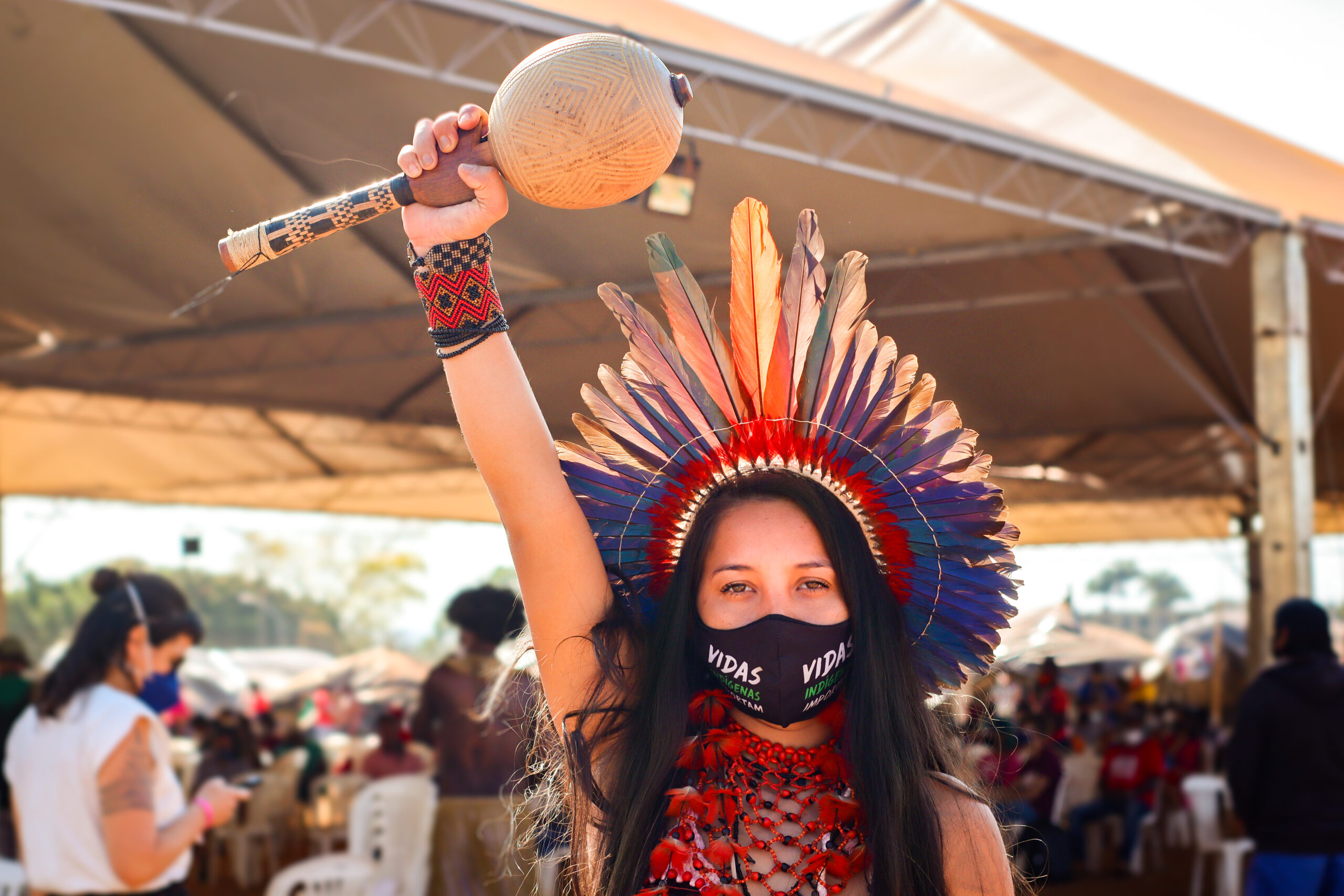
Immersed in reports and verifications, she says they were four difficult years: “It was a time of resistance. It was the time when we most had to stand up as Indigenous people, as Indigenous youth, to fight all the evil that was happening with our people,” affirms Sateré-Mawé.
It was the time when we most had to stand up as Indigenous people, as Indigenous youth, to fight all the evil that was happening with our people.
Samela Sateré-Mawé
‘We want to occupy the State‘
“Of the 513 people in Congress, only two are Indigenous women,” stated Sateré-Mawé who, when she spoke with InfoAmazonia, had just attended the swearing-in ceremony for Célia Xacriabá (PSOL-MG) and Sônia Guajajara (PSOL-SP), both elected in 2022 following an unprecedented campaign involving 30 candidates in 20 states from Brazil’s Indigenous People Articulation organizations (APIB).
Maial Kaiapó was one of those candidates, hoping to represent the Kaiapó people in Brasilia as the first female Federal Deputy. She was not elected, but soon realized that just participating in the elections “lit a spark, awakening the desire among Indigenous people to participate in the political process.” For her, the result couldn’t be more critical: “Kaiapó territory is located in southern Pará, which is known as the ‘deforestation arch’—a place riddled with conflict and violations of human, territorial and environmental rights,” she states. “Everything got worse over the last four years.”
Until 2019, Maial Kaiapó had worked in the public Indigenous Healthcare system as part of Controle Social, an employment program through which Indigenous people participate in the planning, implementation evaluation and monitoring of the primary care offered in the SUS public healthcare system. She was fired during the Bolsonaro administration. “We were fighting to be heard, asking that Indigenous Healthcare needed to be different. We addressed the Yanomami situation back then, spoke about the risks they were running. It was all ignored,” she recalls.
After losing her job, she went to work for Joênia Wapichana, Brazil’s first female Federal Deputy to be elected to Congress, and the current President of FUNAI. “Then, I moved on so I could offer consulting directly to the Kaiapó people, to their organizations, because we have our own associations. This was a really important move for me because I could use all my knowledge to directly help my people.”
“With this new scenario in 2023, I think we will begin to rebuild. We inherited a broken-down situation and now, it’s time for reconstruction. Currently the most important thing is to understand the way things were in the past and try to make things better, to take care of what was so badly hit in recent years, to strengthen FUNAI, SESAI and IBAMA.”
Samela Sateré-Mawé also believes that, despite the progress that the new government means for the next four years, it is vital that Indigenous people actually occupy spaces they had never imagined possible.
“I have no expectations that our fight is over now just because we have some representation. The fight will continue. We don’t want just one Ministry. We want—who knows—a woman as president and more Indigenous representatives in the National Congress, the Legislative Assemblies and Municipal Chambers. We want to occupy the State.”
The fight will continue. We don’t want just one Ministry. We want—who knows—a woman as president and more Indigenous representatives in the National Congress, the Legislative Assemblies and Municipal Chambers. We want to occupy the State.
Samela Sateré-Mawé
At the epicenter of the crisis
The MapBiomas Initiative released a report in September of last year that was developed by a multi-institutional network composed of universities, NGOs and IT companies for mapping land use in Brazil and monitoring changes in the national territory. The report showed a 91% advance in illegal gold mining in Amazonia over the last 10 years, mostly in the Kaiapó, Munduruku and Yanomami Indigenous Territories, with 11,542, 4,743 and 1,556 hectares, respectively.
At the epicenter of the crisis brought on by the increase in illegal gold mining together with the failed healthcare system in the Yanomami Territory, Júnior Hekurari Yanomami spoke to InfoAmazonia from the Surucucus region where he was born. He was, at the time, waiting for more medical professionals from the SUS National Healthcare Force to arrive and treat their sick.
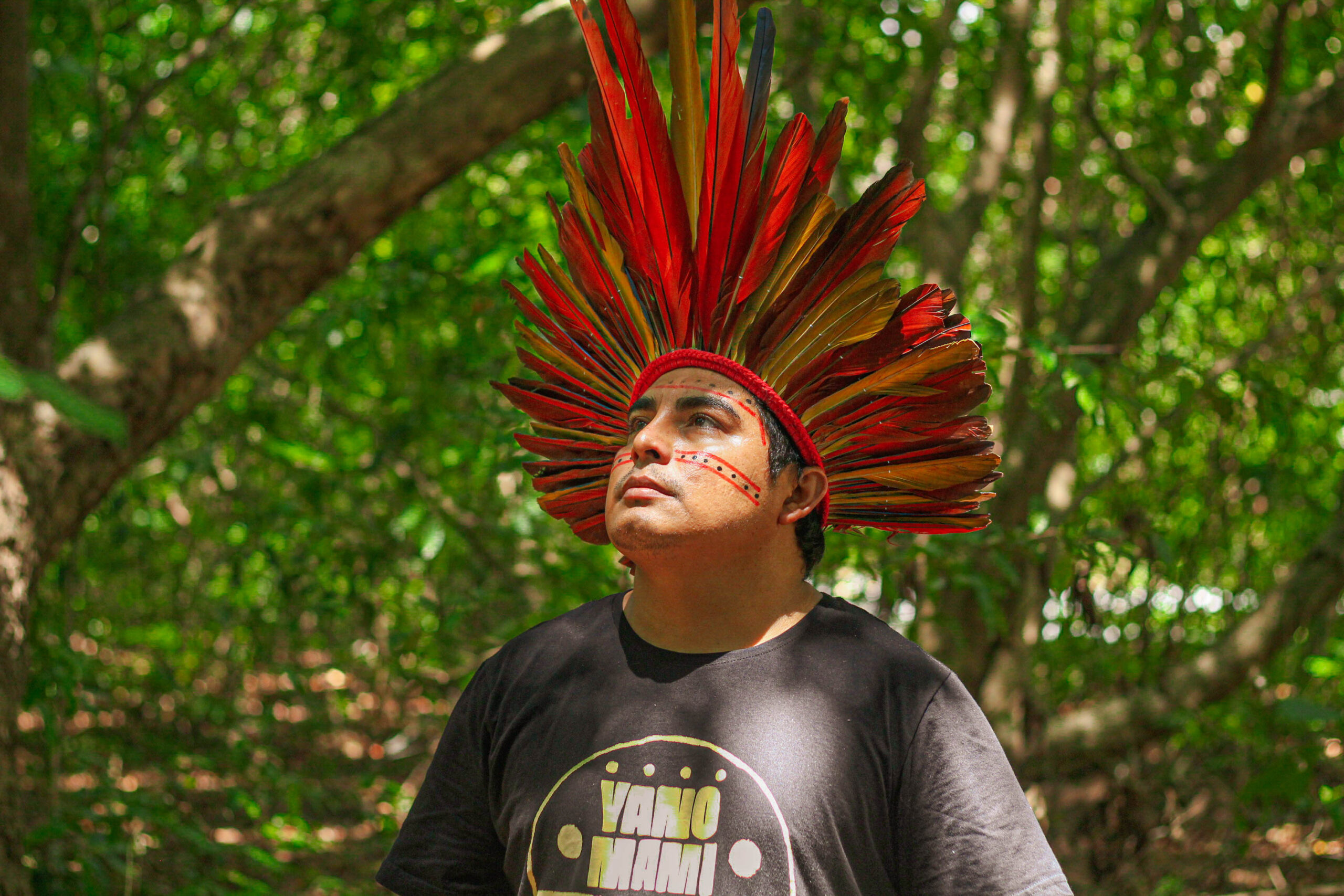
“There were many deaths over the last four years; we saw much death. We lost children, women and young people. There was much Malaria, malnutrition and many invaders. These are the fingerprints that the Bolsonaro administration left on the Yanomami Indigenous Territory,” stated Júnior Hekurari Yanomami, who has worked in the Indigenous Healthcare field since the age of 14. “I’ve been a healthcare worker, and I’ve been a consultant for Indigenous people. In 2019, I became president of the Yanomami District Health Council (DSEI-Y) and today I’m also head of the URIHI Yanomami Association.”
He affirmed that the Yanomami health crisis becomes more serious every year, and has especially worsened recently. “I was born and grew up here and have never seen a situation like the one we’re in now, especially in the Sururcucus and Auaris regions where people are dying of Malaria, malnutrition and parasites.”
I was born and grew up here and have never seen a situation like the one we’re in now, especially in the Sururcucus and Auaris regions where people are dying of Malaria, malnutrition and parasites.
Júnior Hekurari Yanomami
In April, 2022 during the Terra Livre Sit-in in Brasilia, Júnior Hekurari Yanomami presented then-candidate Lula with a report entitled “The Yanomami Under Attack”, which detailed data on the tragedy. Now, he says the new government must act quickly to prevent more Yanomami deaths—at least 570 children died of “preventable diseases” during the Bolsonaro administration.
“We’re delivering food to the villages and also treating the Yanomami. They don’t only need doctors, we also need medicines, oxygen, vaccines, everything. We need to do all the work and, so it will work, I’m organizing. It doesn’t do any good to send doctors to Sururcucus if we don’t have any materials for them to work with. It’s important that everything is planned out.”
‘After mining comes, the fish disappear’
Born in a village called Praia do Índio in the municipality of Itaituba—which is famous for being the main hub of illegal gold “laundering” in the Amazon—38-year-old elementary school teacher Alessandra Korap Munduruku is also looking toward the future without forgetting the past.
“The city of Itaituba had a boom when the gold miners began to come in the 1960s and 1970s. So, I was born here and saw everything growing up around me,” she recalls. “After mining comes, the fish disappear, as do the animals we hunt to eat. People get a number of sicknesses. Tuberculosis, Malaria. They lose their strength to hunt, to plant, to make farinha [the Indigenous yucca flour food staple].”
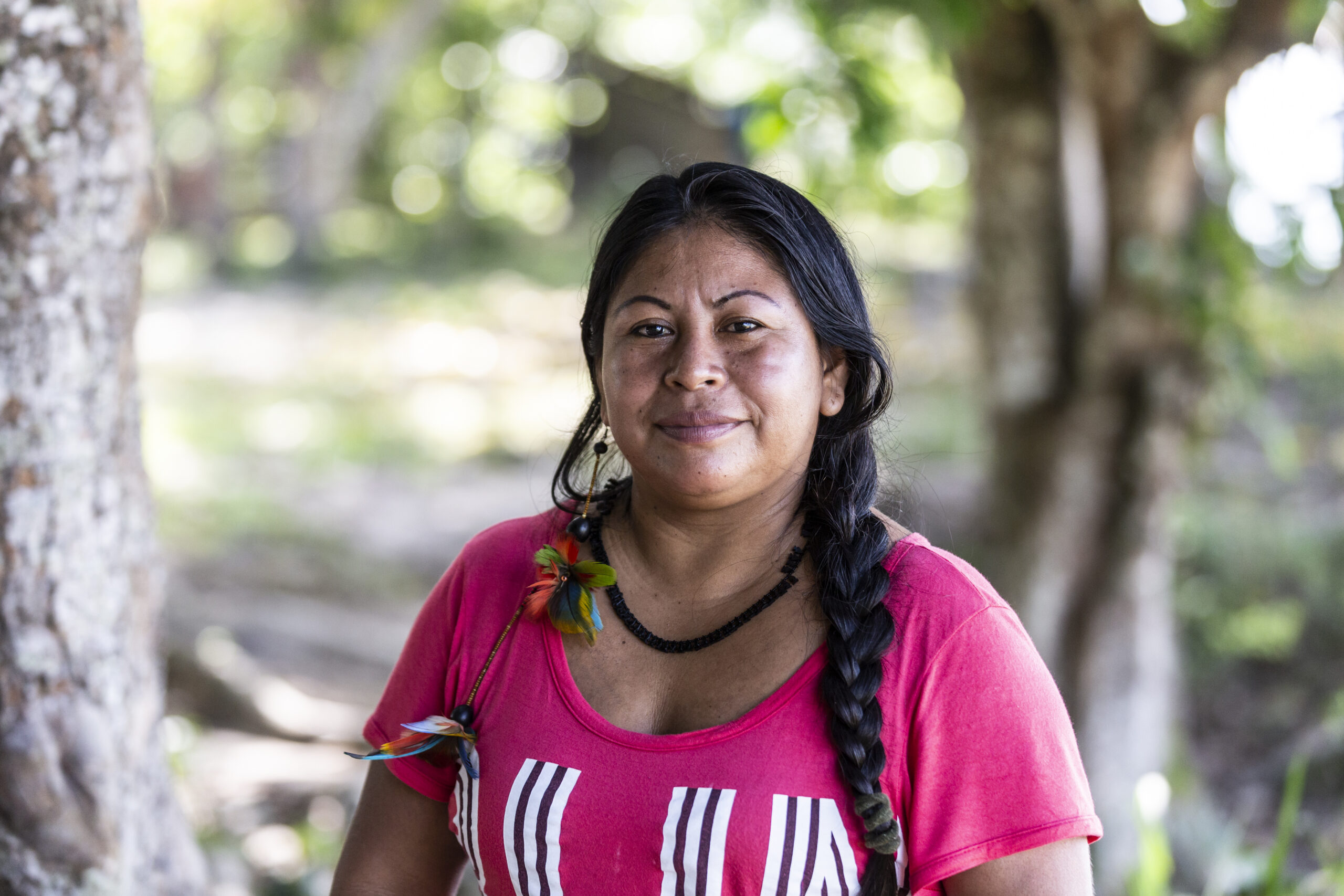
She has seen her role change completely in recent years because she began to see the situation not only of her own people but also of all the Indigenous people in the region. From a seed, she says, grew a tree. “In the beginning, I thought I had to fight just for my region, for my village. But then I began to understand what our chief. Except at the time I was a little shy and the first opportunity they gave me was to be a school teacher.”
“I couldn’t make myself stay inside the classroom. I wanted much more, I wanted to get the kids out of the classroom. I would ask myself what sort of future they had. And I realized that their future needs to be much more than that. It needs to be through their territory, and the river. So I started to move, I started going to meetings.”
“We know how much we fought against Belo Monte during the PT administration, and against the dam they wanted to build on the Tapajós but we didn’t let them. Then, along came Bolsonaro with his speech about not demarcating [Indigenous Territories], about mining on Indigenous Territories, that Indigenous people need to join society, saying that we were animals in a zoo—all of that hate speech against the Indigenous peoples.”
According to Alessandra Korap Munduruku, once she became involved in the debates and protests, she could see it wasn’t a “small fight, it was a much larger battle.” At the end of 2018, she began studying Law but soon came to a crossroads, where she decided to take time off from the classroom to be able to participate in more demonstrations and report the impact of government actions on Indigenous Territories.
“Back then, many people were talking about corruption. But for our people, the concern was with our territory, our bodies,” she says. “This only got worse when Bolsonaro tried to remove FUNAI from the Ministry of Justice and take the demarcations off the table, sending them to Agriculture or the Women’s Ministry. The Indigenous Movement had to make a stand and I wanted to study, but I couldn’t. So I had to take a break from my studies because I thought, ‘either I study Law, or I go out and fight for my people.’ So, I left the university and joined the fight.”
The Indigenous Movement had to make a stand and I wanted to study, but I couldn’t. So I had to take a break from my studies because I thought, ‘either I study Law, or I go out and fight for my people.’ So, I left the university and joined the fight.
Alessandra Korap Munduruku
She also recalls the unprecedented alliance that emerged during the pandemic between the three groups most affected by illegal mining: the Kaiapó, the Munduruku and the Yanomami. “We just thought: we have to get rid of this administration. We won’t be able to stand another four years and we didn’t back down. And it wasn’t just the Munduruku, Yanomami and Kaiapó. We would also see the Pataxó, the Guajajara,” explains Alessandra Korap Munduruku.
“There were people who didn’t speak the Portuguese language—old people, children, pregnant women—who left their territories to go to Brasilia and ask for help, to tell of what was happening to them. It moves me to think about it. We were all under attack and feeling it.”
For Alessandra Korap Munduruku, the most important thing now is to make sure the new government provides the help it owes the over 300 peoples composing Brazil’s Indigenous population today.
“I know that today, it’s not just malnutrition. There’s mercury poisoning that kills the rivers and the fish. The invasions are extensive and we urgently need to get the illegal miners out of our Territories and also have a plan for keeping them out, because if not, they will work against us and come back again in four years.”
This is an InfoAmazonia report for the PlenaMata project.



